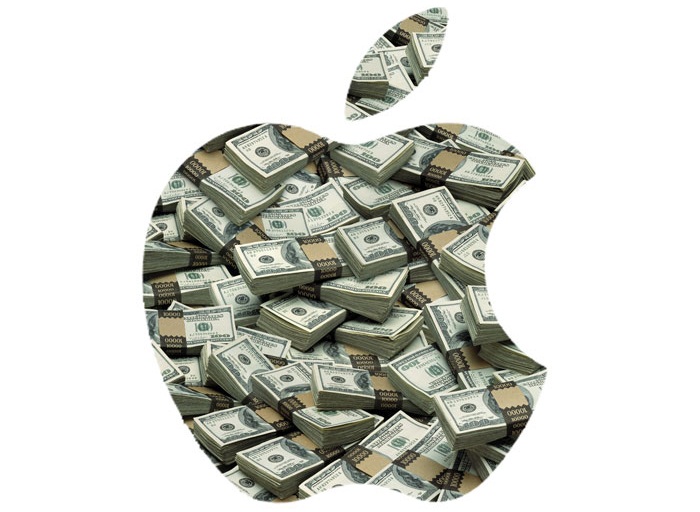

Apple has begun actively shutting down websites that sell access to developer test versions of its iOS 6 mobile operating system, it has been confirmed.
Some developers have engaged in the practice of reselling beta-test versions of iOS to the public, selling it as a way of getting access to a new version of iOS months before its official release.
Developers who pay Apple $99 (£64) per year for access to iOS test releases are able to install the software on up to 100 devices – identified by a Unique Device Identifier (UDID) – for testing purposes. A number of “UDID activation” websites resell these installation rights, usually for about $10 per device.
iOS 6 is set for release in the autumn, when it will be provided free of charge to iPhone owners.
A number of UDID activation sites have gone offline, while others – including udidactivation.com, one of the most popular such sites – became temporarily unavailable around the end of June before resuming operations.
Fused, a Seattle-based web hosting company, confirmed it had received warnings from Apple related to several of the UDID activation sites it hosts. Fused said it had received takedown notices from Apple under the US’ Digital Millennium Copyright Act (DMCA).
“Apple has been fairly heavy-handed with the DMCA requests to the ones we host,” said Fused chief executive David McKendrick in a Twitter message on Friday.
Apple has in the past reportedly cancelled some developer accounts over beta software resales, but McKendrick said the DMCA requests are a new tactic.
“This is definitely a new move on Apple’s part,” McKendrick told the BBC on Monday.
He said the crackdown is unlikely to be successful, as many UDID activation sites are simply shifting to hosting companies based outside the US.
Software reselling is a controversial issue, with vendors typically seeking to restrict customers’ ability to resell software that is no longer needed. Last week, however, in a ruling with potentially far-reaching implications, the European Union’s Court of Justice ruled in favour of resale rights in a case involving digitally distributed software.
Oracle had sued a German company called UsedSoft, which specialises in reselling software licences, on the grounds that the company’s activities violate copyright laws. The court ruled that UsedSoft is allowed to resell the licences, even if restricted from doing so by the software’s licence agreement, as long as the original owner ceases to use the software.
Such resale rights are already recognised to apply to software distributed via a physical medium such as a CD or DVD, but the court ruled that this applies also to digitally distributed software. Those buying such software licences should be considered “lawful acquirers of a copy of a computer program”, the court ruled.
The iOS issue is, however, different in that the developers involved are not reselling developer accounts that are no longer in use, but are rather dividing up and selling UDID activation rights that are intended for beta-testers.
In the past Apple has pointed out that its developer programme licence agreement prohibits developers from providing beta software to anyone other than registered employees, contractors or others with a need to use the software to build and test applications.
At the time of publication, Apple had not responded to a request for comment from TechWeekEurope.
iOS 6 adds 200 features to the platform, including new maps, an updated Siri, Facebook integration for Contacts and Calendar, and a new Passbook app, according to Apple.
“iOS 6 continues the rapid pace of innovation that is helping Apple reinvent the phone and create the iPad category, delivering the best mobile experience available on any device,” Scott Forstall, Apple’s senior vice president of iOS Software said last month.
Is Microsoft Office your friend? Take our quiz.
Meta says it will stop targeting personalised Facebook ads at UK woman after legal battle,…
Nine EU countries led by the Netherlands push European Commission for follow-up to 2023 EU…
Former Cruise chief executive Kyle Vogt reportedly raises $150m for The Bot Company at $2bn…
Gotbit founder Aleksei Andriunin pleads guilty to manipulating tokens' trading volume and price after extradition…
ByteDance's largest US investors reportedly in talks for majority stake in US TikTok spin-off, with…
Apple reportedly reassigns Siri development to executive behind Vision Pro after acknowledging delays to much-hyped…
View Comments
This court ruling puts a long awaited dent in the FUD (Fear, Uncertainty & Doubt) tactics employed by the software vendors. Despite the overwhelming (and rather shameful) pressure imposed by the French, Irish, Spanish and Italian governments to try to sway the CJEU on its decision in Oracle’s favour, I am glad to see common sense prevail on the subject of the Exhaustion Principle. Unlike other secondary software models (such as Microsoft), the secondary Oracle software market relied on the Exhaustion Principle to make it work; and while I am no fan of the rather dubious way in which Usedsoft has conducted its business over the past few years, it is great to see some ‘legal justice’ (an oxymoron that we do not often have the opportunity to use). Worth noting that Usedsoft's use of a Notary (in part, to hide where the licences came from) was deemed illegal by the German courts and Usedsoft is now also going through insolvency proceedings. There are other secondary software licence suppliers whom adopt more transparent business models that do not rely on the Exhaustion Principle.